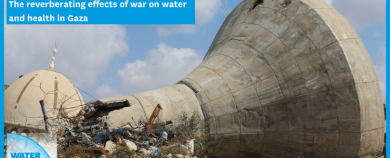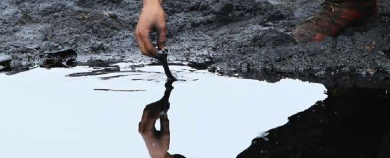
Understanding the Reverberating Effects of Armed Conflict
Urban and rural water services are defined by an interdependency of people, hardware and consumables. These three components are reliant on each other for the proper functioning of the system. In addition, water services are complex and interconnected systems. The cumulative degradation of the system over time adds to its complexity, presenting challenges and incurring significant costs for rehabilitation efforts.
In the context of armed conflict, the destruction of water infrastructure becomes particularly impactful, especially in prolonged urban conflicts. This exacerbates the vulnerability of water systems as urban services are highly interconnected and susceptible to disruptions in markets and supplies. These "reverberating effects" have profound consequences across a spectrum of interlinked sectors, including rural and urban infrastructure, public health, education, food security, economic prospects, and adverse environmental impacts. These effects persist over extended periods and extend far beyond the immediate conflict zone.
While progress has been made in data collection on water system damage during conflicts, there is still insufficient research on the long-term impact of service disruption on the lives of affected populations. Understanding the ways in which these disruptions impact civilian populations is crucial. This understanding is essential not only for safeguarding these systems during armed conflicts but also for facilitating emergency preparedness and enabling effective recovery measures. Enhanced knowledge in this regard will contribute to better protection of water systems, ensuring their resilience in times of conflict, and promoting the well-being of affected communities.





